Old knowledge, new techniques – working together to rehabilitate degraded farmland

ICARDA would like to acknowledge the donors and partners who made this work possible: The United States Forest Service (USFS), Utrecht University, the United Nations Convention to Combat Desertification, the World Overview of Conservation Approaches and Technologies(WOCAT), the Jordanian National Agricultural Research Center (NARC), and the Watershed and Development Initiative (WADI).
For World Environment Day, Mira Haddad, ICARDA’s Associate Researcher in Spatio-temporal Assessment and Rangeland Rehabilitation, joined the WOCAT/UN “Restoring Life to the Land” webinar to discuss ways to combat global desertification, and talk about ICARDA’s work with Bedouin communities to rehabilitate severely degraded rangelands in Jordan.
During the webinar, Mira explained how in just five years, ICARDA -alongside the farming communities- has rehabilitated degraded rangelands by reintroducing water catchment systems, indigenous fodder and high yield barley to Jordan’s rangelands, using Sustainable Land Management techniques that merge cutting edge research with traditional approaches and local knowledge.
Sustainable Land Management (SLM) methods for global rangelands
Rangelands cover 90% of the landmass of Jordan, a country battling with crippling water scarcity. Decades of overgrazing and unsustainable agricultural practices, in a backdrop of intensifying climate change, have turned once productive rangelands into vast expanses of barren land.
ICARDA’s intervention is focusing on the central Badia region, an area where the depleted ecosystem is no longer capable of providing sufficient food and feed to semi-nomadic Bedouin communities and their livestock.
Crucially, the ICARDA research and innovations deployed on these rangelands is aimed to be scalable across global dry areas with the same challenges.
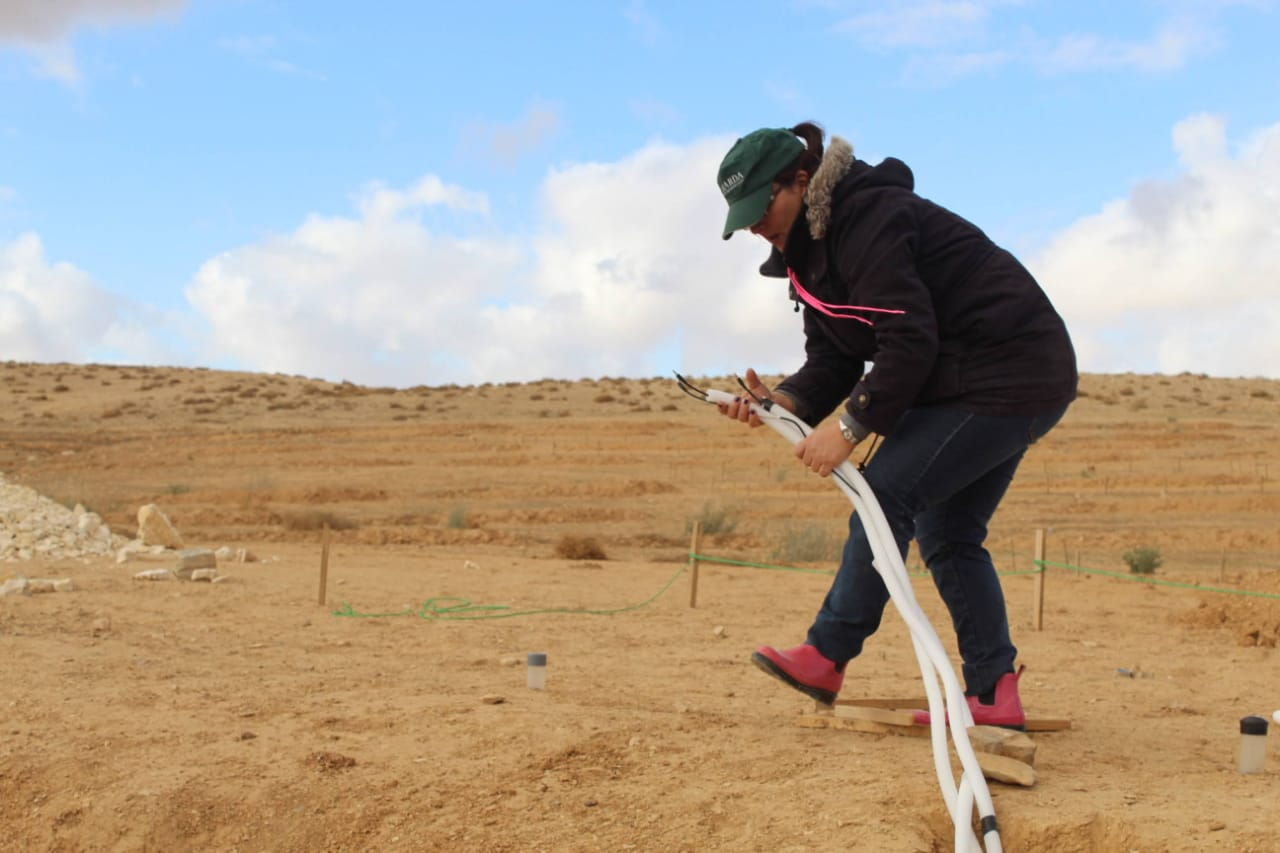
For this watershed intervention, which started in 2016 in collaboration with Jordan’s National Agricultural Research Center and local agropastoralists, Mira and her team devised three Sustainable Land Management technologies: Mechanized micro water harvesting, Gully plugs and Marab technology.
Mechanized micro water harvesting
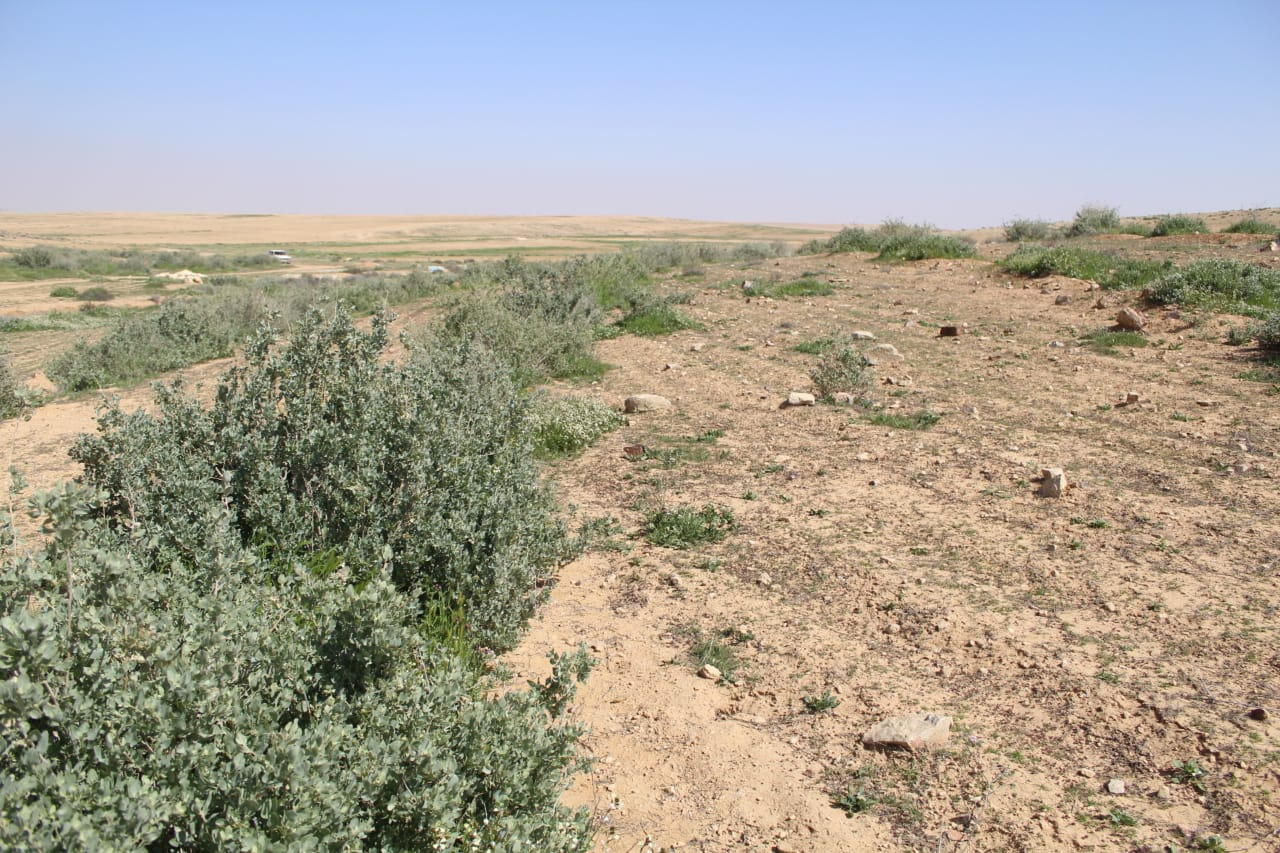
Due to decades of degradation, soils across Jordanian rangelands have become stiff and compacted. As a result, they can no longer capture and retain precipitation water which evaporates instead of being used productively.
To break the thick soil crust and restore its ability to conserve water, the ICARDA mechanized micro water harvesting technique uses a Vallerani tractor to plough water-harvesting pits around the intervention area. These water pits store water and preserve enough soil moisture to sustain indigenous plants and shrubs.
3000 seedlings of the forage crops Atreplix Halimus and Retama were planted and quickly became verdant patches of vegetation. As the plowed pits degrade, the vegetation takes over and intercepts the rainwater and allows it to soak into the soil.
The restored shrubland ecosystem is particularly important to provide fodder for the local agropastoralists’ livestock, as well as many other ecosystem services.
Gully plugs
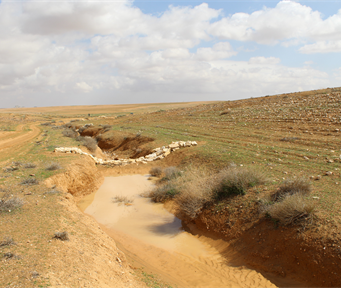
To stabilize the existing gully beds and side banks that are prone to erosion, ICARDA scientists constructed gully plugs -also called check dams. Made of large cobblestones and built in succession, the plugs, which average 2.5 meters in width, dissipate runoff energy, increase water retention and infiltration levels, and encourage sedimentation.
By stabilizing the erosion-prone gullies and side banks, the plugs are a crucial component of revegetation along the gully path. The roots and the surface cover of the established vegetation stabilize and protect the soil from water flow erosion over time.
Marab technology
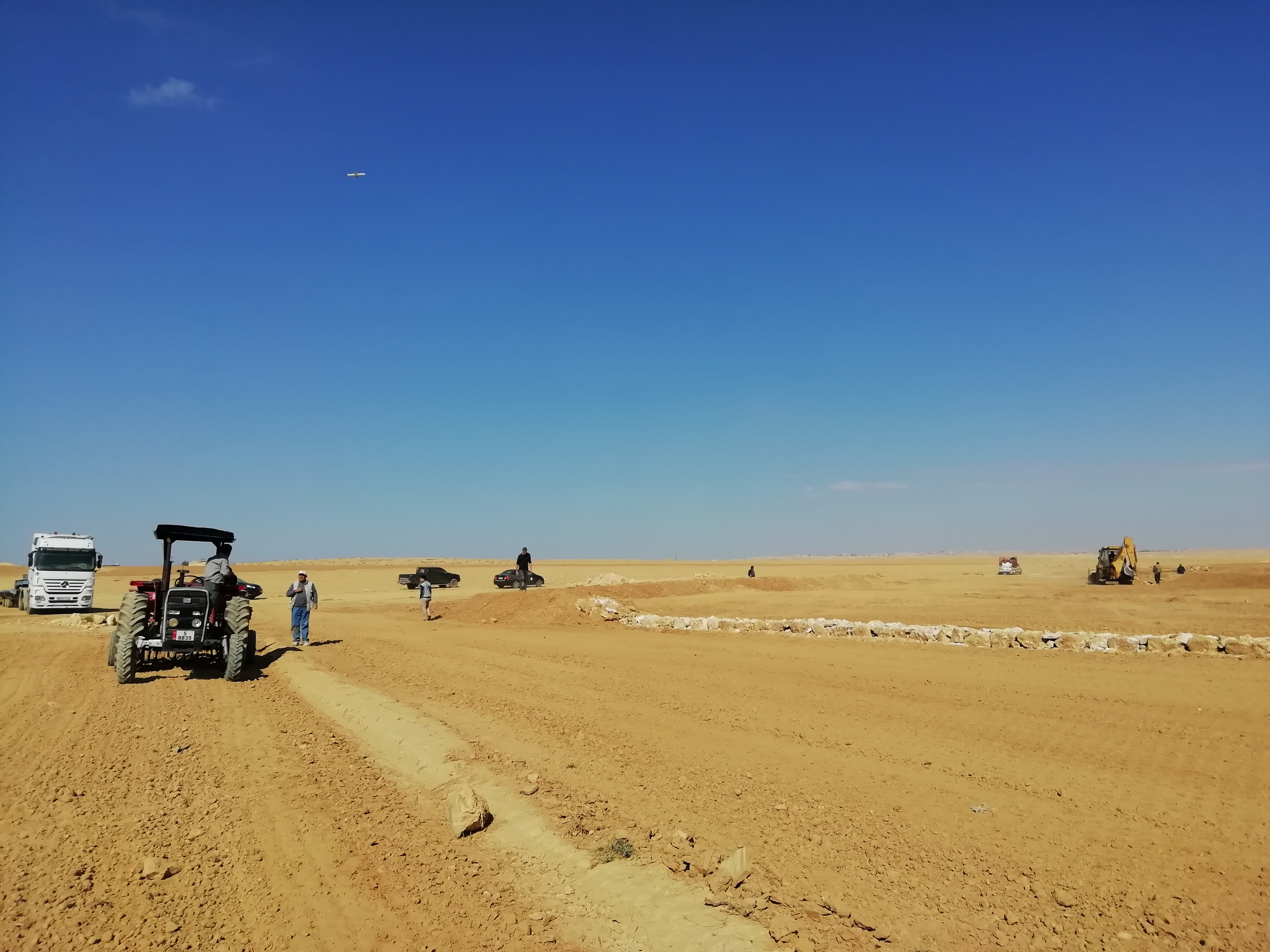
Located downstream, in a 10-hectare-wide natural depression, the Marab captures most of the water from the watershed and prevents it from spilling away.
This macro-catchment water technology is obtained by constructing simple earthen embankments and soil leveling, which decreases runoffs and boosts water infiltration, soil moisture and biomass production.
Eventually, the Marab creates several compartments for flood irrigated crops, such as ICARDA’s high-yield barley. Marab barley’s yield is much higher than when cultivated with conventional methods, with production reaching 5-6 tons per hectare instead of 0.05-0.30 tons per hectare.
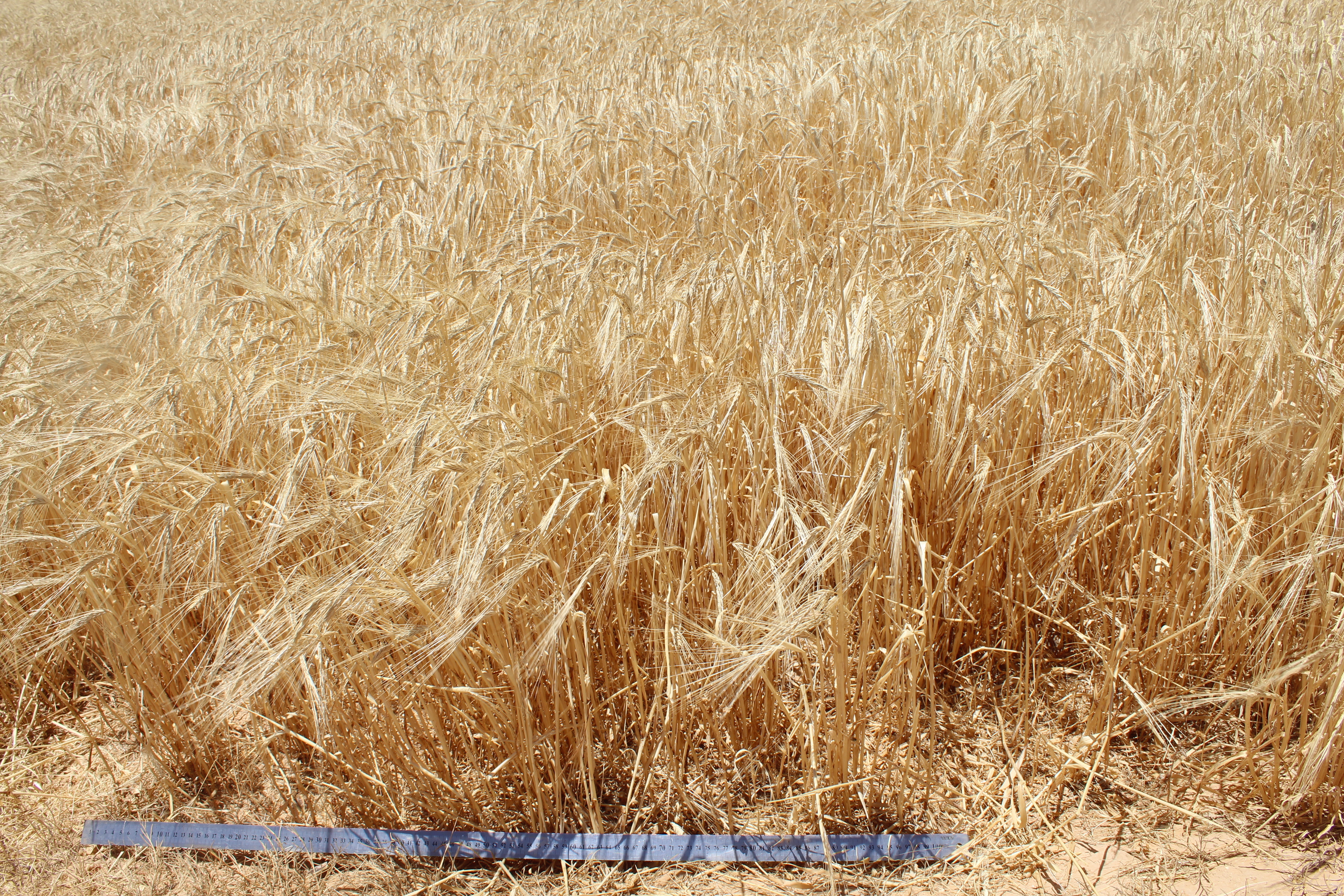
The high-yield barley supports the agropastoralists communities’ food security and provides feed for their goats and sheep.
Although it took time and effort to convince nearby family-farmers of the projects’ merits, Mira and her colleagues are now flooded with demands from villagers in other parts of Jordan’s rangelands. “They were quite skeptical when we first introduced the project, because we needed the land to rest for two years, which meant no grazing,” she said.
The Jordanian government is also watching closely. “Recently, the Prime Minister announced that the government will start introducing SLM practices on state-owned land across the country,” she says. “This is a very encouraging sign, after only 5 years of research!”
ICARDA would like to acknowledge the donors and partners who made this work possible: The United States Forest Service (USFS), Utrecht University, the United Nations Convention to Combat Desertification, the World Overview of Conservation Approaches and Technologies(WOCAT), the Jordanian National Agricultural Research Center (NARC), and the Watershed and Development Initiative (WADI).

